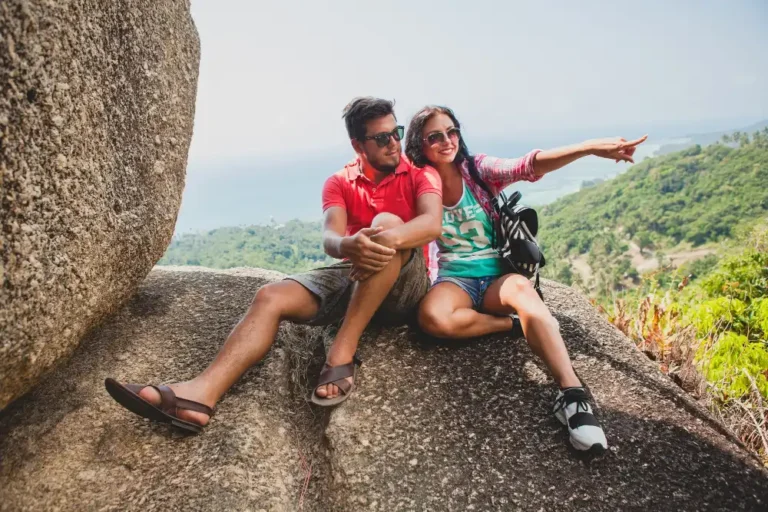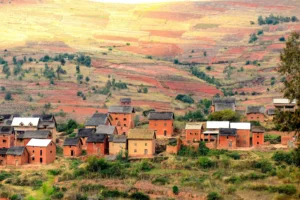Understanding Eco-Tourism
What is Eco-Tourism?
Eco-tourism is a responsible travel philosophy that emphasizes sustainability, conservation, and the well-being of local communities. It encourages travelers to engage with nature and culture in a way that minimizes environmental impact and promotes awareness of ecological issues.
The Importance of Eco-Tourism in Madagascar
In Madagascar, eco-tourism plays a crucial role in preserving its unique ecosystems. By promoting responsible travel practices, eco-tourism helps mitigate the negative effects of mass tourism, fosters conservation efforts, and provides economic benefits to local communities.
Best Eco-Tourism Practices in Madagascar
1. Community-Based Tourism
Community-based tourism (CBT) involves local communities in the management and operation of tourism activities. This approach empowers residents and ensures that they benefit directly from tourism.
How It Works
Travelers stay in locally-owned accommodations and participate in activities led by community members, such as guided hikes, traditional cooking classes, and cultural performances. This practice not only enhances the travel experience but also supports local economies and preserves cultural heritage.
2. Wildlife Conservation Programs
Madagascar is home to numerous conservation programs aimed at protecting its unique wildlife. Many eco-tourism operators collaborate with these programs to provide travelers with opportunities to contribute to conservation efforts.
How It Works
Visitors can participate in activities such as guided wildlife tours, tree planting, or volunteering in conservation projects. These experiences educate travelers about the importance of biodiversity and the challenges faced by Madagascar’s unique species.
3. Sustainable Accommodation
Choosing sustainable accommodations is vital in eco-tourism. Many lodges and hotels in Madagascar prioritize environmental responsibility by implementing sustainable practices.
Key Practices
- Renewable Energy: Utilizing solar panels or wind energy to reduce reliance on fossil fuels.
- Water Conservation: Implementing systems to collect rainwater and reduce water usage.
- Waste Management: Promoting recycling and composting to minimize waste.
4. Responsible Wildlife Watching
Madagascar is famous for its unique wildlife, including lemurs, chameleons, and various bird species. Responsible wildlife watching is essential to ensure that these animals are protected and their habitats remain intact.
Best Practices
- Guided Tours: Always opt for guided tours led by trained professionals who follow ethical wildlife viewing guidelines.
- Minimize Disturbance: Keep a safe distance from animals and avoid feeding them to prevent altering their natural behaviors.
- Educate Yourself: Learn about the species you encounter and the conservation challenges they face.
5. Supporting Local Artisans
Purchasing handmade crafts and products from local artisans is a great way to support the economy and promote cultural preservation. This practice ensures that traditional skills are passed down through generations.
How to Support Local Artisans
- Visit Artisan Markets: Explore local markets where artisans sell their crafts, such as woven goods, pottery, and jewelry.
- Participate in Workshops: Engage in workshops to learn traditional crafts while supporting local artisans.
6. Participating in Reforestation Projects
Deforestation poses a significant threat to Madagascar’s biodiversity. Eco-tourism initiatives often include reforestation projects aimed at restoring degraded areas.
How It Works
Travelers can participate in tree-planting activities or contribute financially to reforestation programs. These efforts not only help restore habitats but also combat climate change and enhance local ecosystems.
7. Promoting Sustainable Transportation
Transportation can significantly impact the environment, and choosing sustainable options is crucial in eco-tourism. Madagascar offers various eco-friendly transportation methods.
Sustainable Options
- Walking and Biking: Exploring destinations on foot or by bicycle reduces carbon emissions and allows for a more immersive experience.
- Public Transportation: Utilizing local buses or shared taxis can minimize the environmental impact compared to private vehicles.
8. Engaging in Cultural Exchange
Cultural exchange is a vital aspect of eco-tourism that fosters understanding and respect between travelers and local communities. Engaging with locals enriches the travel experience and promotes cultural preservation.
How to Engage
- Attend Local Festivals: Participate in traditional festivals and celebrations to experience local culture firsthand.
- Learn the Language: Making an effort to learn basic Malagasy phrases can create connections and show respect for the local culture.
Challenges and Considerations
Balancing Tourism and Conservation
While eco-tourism offers numerous benefits, it also presents challenges. Striking a balance between tourism development and conservation efforts is essential to ensure that the natural environment and local communities are not adversely affected.
Educating Travelers
Educating travelers about responsible practices is crucial for the success of eco-tourism. Tour operators and local communities must work together to raise awareness about the importance of sustainability and conservation.





